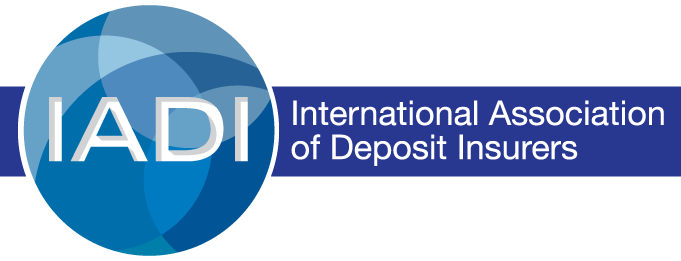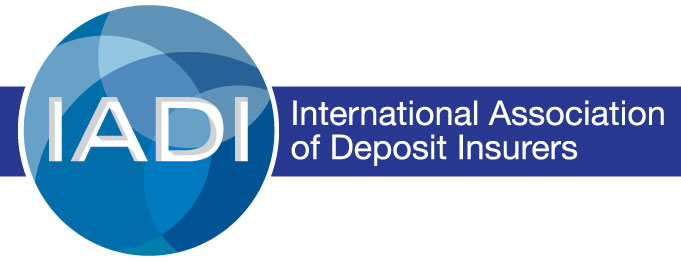Keynote address by Eva Hüpkes, Secretary General, International Association of Deposit Insurers, at the IADI Middle East and North Africa (MENA) Workshop on 29 January 2024.
I am delighted to be here this morning to welcome you to this IADI Middle East and North Africa (MENA) workshop in Marrakech, a city with a rich history of learning and culture.
The Ben Youssef Madrasa, a 14th-century architectural marvel, was once the largest Islamic school in North Africa and is now a UNESCO World Heritage site. It is a testimony to the city’s legacy as a centre of learning.
Marrakech is thus the perfect venue for our workshop. I wish to express our deep gratitude the Moroccan Deposit Insurance Corporation for hosting us in such a suitable setting.
It is a particular pleasure to welcome the General Manager of Bank Al-Maghrib Mr. Abderrahim Bouazza, the Chair and Board Members of the Moroccan Deposit Insurance Corporation, the General Manager of the Morocco Deposit Insurance Corporation, Mr. Abderrahim Nassiri, as well as the Representatives of Bank Al-Maghrib, the Moroccan Capital Market Authority, and the Supervisory Authority of Insurance and Social Welfare. Finally, let me express our special thanks to Mr. Mohamed Mahraoui who serves as Chairperson of IADI Middle East and North Africa Regional Committee for his help in organising this event.
What are the lessons of the turmoil of 2023?
The 2023 banking turmoil has led to widespread reflection on how to reduce the risks of banks failing and to contain the impact on financial stability and the broader economy if bank failures inevitably occur.
What have we learnt? At one level we learned nothing new – basic bad management and unsustainable business models can – and should – lead to bank failure. Rapid growth, undiversified funding strategies and toxicity in managerial culture are often harbingers of financial distress.
Still, there are some lessons:
The first is the virulence of bank runs in a digital age. The immediate cause of collapse in the case of the US regional banks were massive deposit withdrawals sparked and propagated by social media following large losses on unhedged fixed-income portfolios.
The second is the importance of sustainable business models. Credit Suisse had lost its way. Despite multiple efforts to revise its corporate structure and business strategy, its actions let to an erosion of its franchise. Long-standing problems with management, organisation and culture led to significant losses, a gradual erosion of confidence and eventually depositor flight.
The third lesson is the importance of the early and rapid provision of adequate liquidity to institutions that are sound but subject to extraordinary stress. Some may say that this is not a new lesson, but its importance is far greater in a digital age.
The fourth lesson is the value of preparing for crises. The US authorities applied time-tested tools for resolving the three banks that failed, modifying them by extending protection to wholesale deposits. Swift and decisive action by the Swiss authorities was facilitated by the prior consideration of a suite of resolution measures and early dialogue and contingency planning with counterparts both at home and abroad.
It is this last lesson that I would like to dwell upon. It is definitely not a new one. Many of you will know Aesop, the ancient Greek storyteller and fabulist was born more than two and half millennia ago, and his story about the ant and the grasshopper. It is one that many parents tell their children as they fall asleep. In this fable, the ant works hard all summer, while the grasshopper plays and does not prepare for winter. When winter comes, the grasshopper is starving and begs the ant for food, teaching the lesson about the importance of hard work and planning for the future.
As the memory of earlier disruption fades with the passage of time crisis management inevitably loses its place on the agenda of policy makers. However, safety net authorities must not fall asleep. The 2023 banking turmoil reminded us all how crucial a functioning financial safety-net is for maintaining trust in our banking system in times of stress.
Deposit insurance is one component of many countries’ financial safety net, which also includes prudential regulation and supervision, resolution, and the lender-of-last-resort function. In addition, the ministry of finance or the treasury also plays an important role as provider of a backstop.
The interrelationships among these functions and authorities vary across jurisdictions as does the role of deposit insurers. Supervision and resolution functions may or may not be included in the deposit insurer’s mandate. In a number of jurisdictions, deposit insurers’ supervisory powers are limited. In fact, in the MENA region, the majority of deposit insurers have a paybox or paybox plus mandate. However, safety net is an area that is evolving in the region. Three out of the seven MENA members responding to the 2022 IADI Annual Survey stated that they also act as a resolution authority in their jurisdiction.
To be effective, the deposit insurance system must work in synergy with the frameworks for prudential regulation, supervision, and resolution, as well as the lender of last resort and public backstop function.
The right mix tools
Recent developments have given rise to questions about the right mix of safety net policies and their design. Just like in Moroccan cuisine it is the unique blend of spices makes the perfect Tagine, it is the mix of policies that matters.
Given faster withdrawals, some have suggested more extensive deposit insurance to help avoid runs. However, higher deposit insurance comes at a cost. It has a cost for banks that need to fund the deposit insurance to be credible, and it has a cost in terms of moral hazard. At the same time, with less than full deposit insurance and an increasing amount and share of uninsured deposits and their increased flightiness, the risk of runs and contagion remains. So deposit insurance needs to be complemented by other policies that help calm depositors and reduce the risk of runs.
One such policy focuses on self-insurance. This can take the form of prepositioning enough collateral to cover banks’ runnable liabilities, that is uninsured deposits and other short-term liabilities.
Other policy options focus on adjusting deposit insurance limits, e.g., covering certain accounts fully, such as transaction accounts.
Still other options applied by some of IADI members are higher limits in times of stress, including the possibility of invoking a ‘systemic risk exception’. Another suggestion has been to apply differential pricing of deposit insurance so that deposit insurance premiums reflect bank risk and to make pricing dependant on the amount of uninsured deposits and availability of liquidity buffers.
All these options warrant further exploration. However, all have their challenges that require careful analysis.
How to cooperate?
Implementing the right mix of policies requires close cooperation between the financial safety net participants.
To this end information sharing among safety-net participants is essential. In order to discharge their mandates effectively, deposit insurers and other safety-net participants should have access to relevant, timely and accurate information. The deposit insurer’s need for information varies according to its institutional mandate and its powers. In a simple paybox system, for example, the deposit insurer should have the necessary information to be able to calculate premiums of its members reimburse depositors whenever necessary, including information on the amount of insured deposits held by individual depositors. For its part, a risk-minimising deposit insurer has greater needs for information because of its broader mandate. It must be able to assess the financial condition both of the industry and of individual insured institutions, as well as to anticipate the financial troubles of individual institutions and to deal with them effectively. To this end, some of our members have put in place daily or even real time deposit monitoring systems so as to be able to quickly detect shifts in depositor behaviour.¹
Cooperation in ‘business as usual’ and in crisis times
Thankfully, bank failures are rare, particularly failures of larger institutions. However, when they occur, they can cause havoc for other banks and the financial system.
Crisis management preparations and regular testing of cooperation and coordination arrangements among financial safety-net participants during “business-as-usual” periods help to maintain crisis preparedness and ensure that there is clarity of roles and responsibilities among all financial safety-net participants and a tested playbook for cooperation and coordination. IADI has made it a priority to promote the conduct of simulation exercises and fire drills.
In a crisis, it is particularly important to have clarity on how safety-net participants interact and communicate, what the terms are for using deposit insurance funds to support resolution, and how the use of resources is monitored. In crisis times, there is no opportunity to address these issues afresh.
It is therefore important that Information sharing, and coordination arrangements are explicit so as to avoid or minimise potential conflicts as each authority pursues its mandated objectives while encouraging cooperation in achieving the wider societal aim of financial stability. The recent crisis demonstrated this. The effectiveness of such arrangement can be enhanced if the top officials from the different safety-net participants engage on a regular basis so as to ensure that there is a common understanding on the roles and responsibilities of their respective authorities and the preferred course of action in a crisis.
2024 IADI work priorities
Before concluding, let me set out what we aim to achieve this year. Ten years have passed since the last review of the IADI Core Principles for Effective Deposit Insurance Systems and accompanying Handbook for the Assessment of Compliance. The IADI Core Principles are the international standard for deposit insurance systems. Their review is the centrepiece of the 2024 work programme. Banking systems and deposit insurance systems have evolved and continue to do so.
The review will endeavour to include forward looking elements with a view to ensuring that the IADI Core Principles remain relevant and effective in the evolving financial environment, and adaptable to ongoing and rapid changes in financial systems due to technology. The review should address the issues identified in the IADI Report on the 2023 Banking Turmoil² as well as other issues warranted by recent developments, taking into account the reports of other international bodies, including those of the Basel Committee and the Financial Stability Board.
Conclusion
To conclude let me thank you for coming here to Marrakech to share experiences relevant to cross-border crisis management and resolution. Events like this workshop provide us with an opportunity to learn from each other, identify common challenges and lay foundations for addressing them. I look forward to fruitful discussions in the coming days.
¹ IADI Lessons Learned Report (iadi.org)
² IADI Lessons Learned Report (iadi.org)

